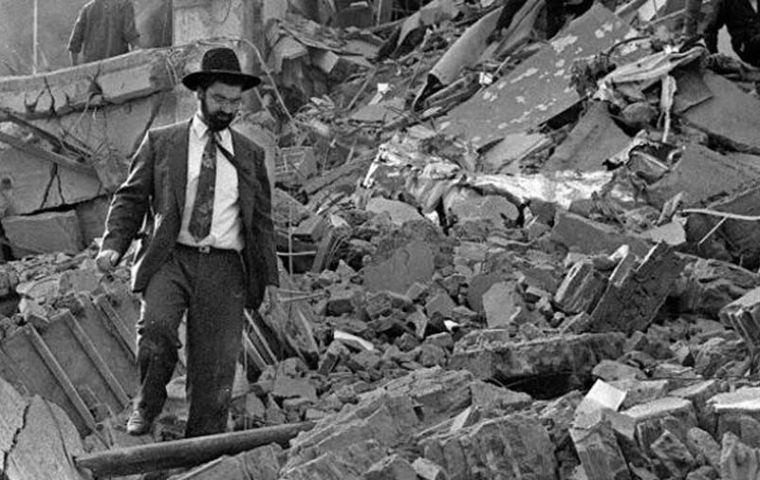MercoPress. South Atlantic News Agency
Israeli embassies worldwide on alert for possible terrorist attack
 Terrorist attacks against Israeli or Jewish facilities in South America have only taken place in Buenos Aires
Terrorist attacks against Israeli or Jewish facilities in South America have only taken place in Buenos Aires The Israeli Government of Prime Minister Naftali Bennett government has placed all of its embassies and diplomatic missions worldwide on alert in view of threats of attacks from Iran that were disclosed following the arrest of a suspect who allegedly planned to murder Israeli businessmen in Cyprus.
Terrorist attacks against Israeli facilities or members of the Jewish community in South America have tken place only twice in history. Both were in Buenos Aires: in 1992 the Embassy was blown up and in 1994 the same happened to a building owned by a Jewish social welfare association (AMIA).
Israeli diplomats were tipped to remain on high alert and Iran has already been said to be behind the alleged plan to assassinate businessman Teddy Sagi in Cyprus.
In recent years, Iran has been behind repeated threats against Israelis and Israeli diplomatic missions. In March this year, the National Security Council warned Israelis that they could be targeted by the Islamic Republic abroad.
Other businessmen reportedly targetted by terrorists were tipped by Israeli Intelligence in time to leave Cyprus, where local authorities are not prone to believing in Iran's involvement and even considered Sagi may not be the actual target of the arrested hitman, but other members of Sagi's gaming software company Playtech, which has offices in Nicosia.
Cypriot authorities have also revealed 11 possible charges for which the suspect is under investigation, including terrorist activity, attempted murder, membership of a criminal organization, conspiracy to commit a crime and being in the country illegally. The suspect, whose name has not been released, has denied any links to Iran, saying he had nothing to hise, it was reported.
The alert has been issued after the head of the Israeli Army, Aviv Kohavi, assured on Tuesday that the country will continue its operations “to destroy Iran's capabilities,” including its nuclear program, following criticism from Tehran about the alleged involvement.
In this scenario, Iran's National Council of Resistance (NCRI), an opposition group in exile, warned that the Quds Force of the Revolutionary Guard (IRGC), responsible for Iran's controversial operations abroad, increasingly uses plus drones as the primary means of conducting air strikes. The NCRI said the drones were manufactured at eight plants in Iran, sometimes using materials smuggled in from abroad and then shipped to countries like Iraq and Syria, where they are assembled and then deployed.




Top Comments
Disclaimer & comment rulesCommenting for this story is now closed.
If you have a Facebook account, become a fan and comment on our Facebook Page!